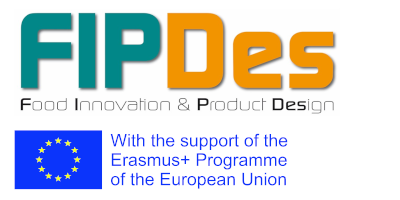Selection Procedure
Eligibility criteria
The files are checked by FIPDes Secretary. Incomplete files, files sent after the deadline are eliminated.
All non-eligible candidates are informed immediately, provided with the reasons of their ineligibility, and have the possibility to appeal if they think an error has been made or an unfair bias against their application occured.
Pre-selection requirements
Only the students that meet the following formal admission requirements can be pre-selected:
- Background: BSc degree or equivalent degree of at least 180 ECTS or equivalent in food science and technology, biotechnology, process engineering, biochemistry, nutrition or food related fields with a number of prerequisites (e.g. chemistry, biotechnology, process technology/engineering, biochemistry, mathematics, statistics) representing at least three years of study from a foreign institute of higher education. Candidates should be interested in a truly international academic experience and aiming for an international career.
- English language proficiency level ("B2 level" according to CEFR, advanced) demonstrated in one of the following ways:
- TOEFL ITP at minimum level 575
- Internet-based TOEFL at minimum level 90
- IELTS (Academic) at minimum level 6.5
- Cambridge Certificate of Proficiency (FCE with B2 level, CAE or CPE)
- Students with English as their mother tongue (the copy of passport is needed to prove this)
- Students who have completed (or who are currently completing) a higher education degree with English as a medium of instruction (a certificate from the university is required to prove this)
- Stay of more than a year in an English-speaking country (a certificate from employer or other as applicable, or a copy of the passport page showing visa to enter and leave the English-speaking country, is needed to prove this)
- Exemptions can exceptionally be made for outstanding students with a lower English proficiency level
Besides, the FIPDes admission team pre-selects only the best students among those who meet the admission requirements, by assessing the whole application of each student.
Selection criteria
Pre-selected students will be then assessed by FIPDes Consortium based on the following qualitative selection criteria:
- List of subjects taken during the BSc level with grades obtained
- Educational background, potential and the grade of qualification obtained
- Excellence criteria : experience in laboratory work and/or cooking; additional training/ courses/ workshops (which are not a part of a regular study programme); Participation in conferences and/or publishing of papers in peer reviewed scientific journals; international and work experience.
- Signed explanation of your own composition stating why you would like to attend the FIPDes Master programme and how this programme will help you in your work and career
- Geographical balance: The Consortium will take into account the origin of the applicants in order to assure a proper geographical balance within each cohort.
The top candidates may be interviewed by FIPDes Consortium during the selection step. This will be a short interview (around 30 minutes), face-to-face (in person, by a software such as Skype or by a video-conference) about the motivation and the choice of the second year study track.
Please note that ONLY the top candidates will be interviewed, so you have to wait to be contacted by FIPDes for interview. Being interviewed does NOT mean that you will be selected.
When will I know if I am selected ?
All candidates are informed in April (at the latest) about the results of the selection process. Please check your spam. All students will be informed of the results. There is no need to email FIPDes to ask for results before mid April.
Privacy statement
If you are selected (proposed for a scholarship/fellowship, put on the reserve list or enrolled on a self-paying basis) your data may be used for the purposes of evaluating the programmes, efficiently manage the projects, and producing statistics. Data could be made available to the EACEA, the European Commission, the European External Action Service staff, as well as to other stakeholders of the Erasmus+ programme, such as Erasmus+ National Agencies, National Erasmus+ Offices and the Erasmus Mundus Student and Alumni Association.
For more information, please read the privacy policy.
This project has been funded with the support from the European Commission. This communication reflects only the views of the author, and the Commission cannot be held responsible for any use which may be made of the information contained therein.
- Updated March 2023 -
